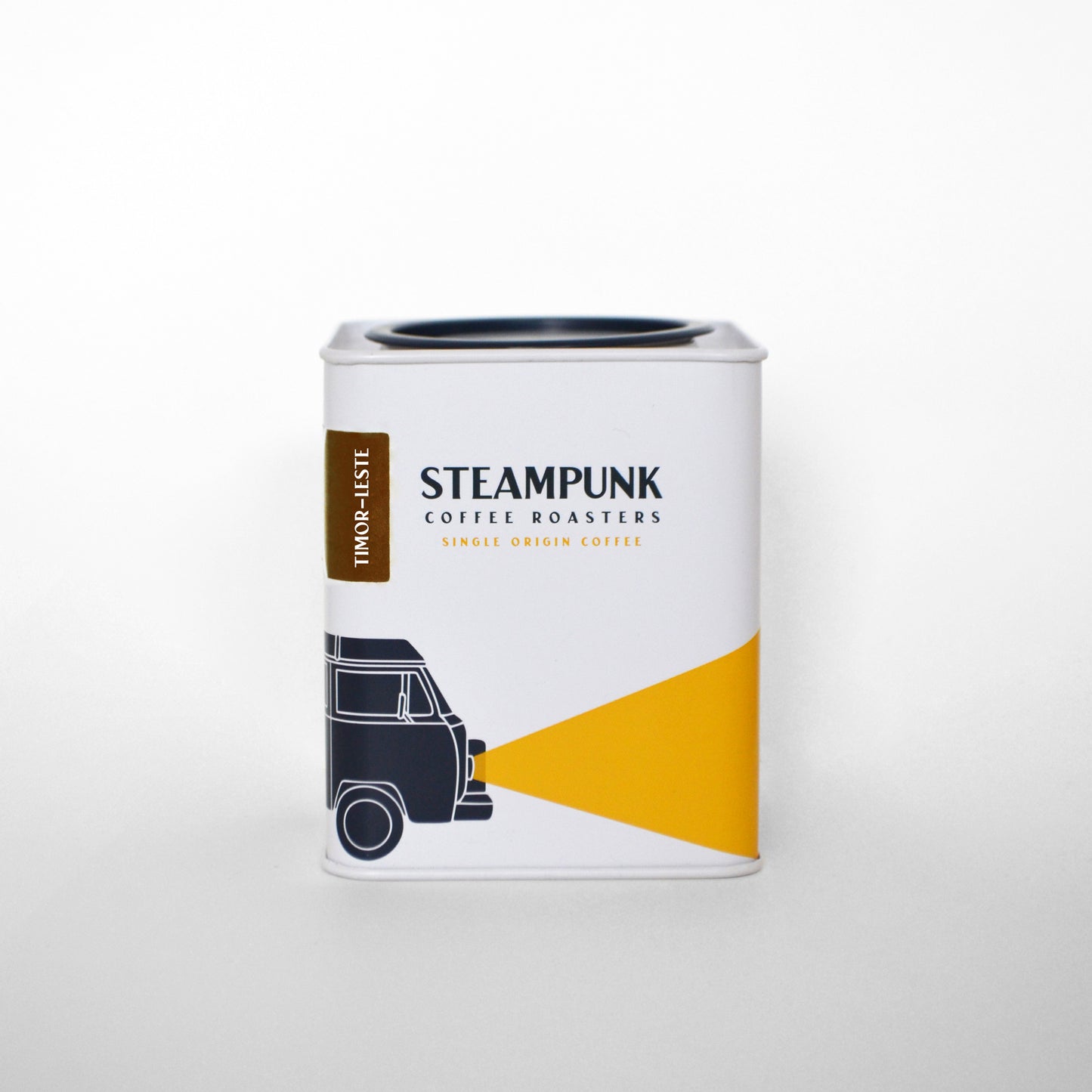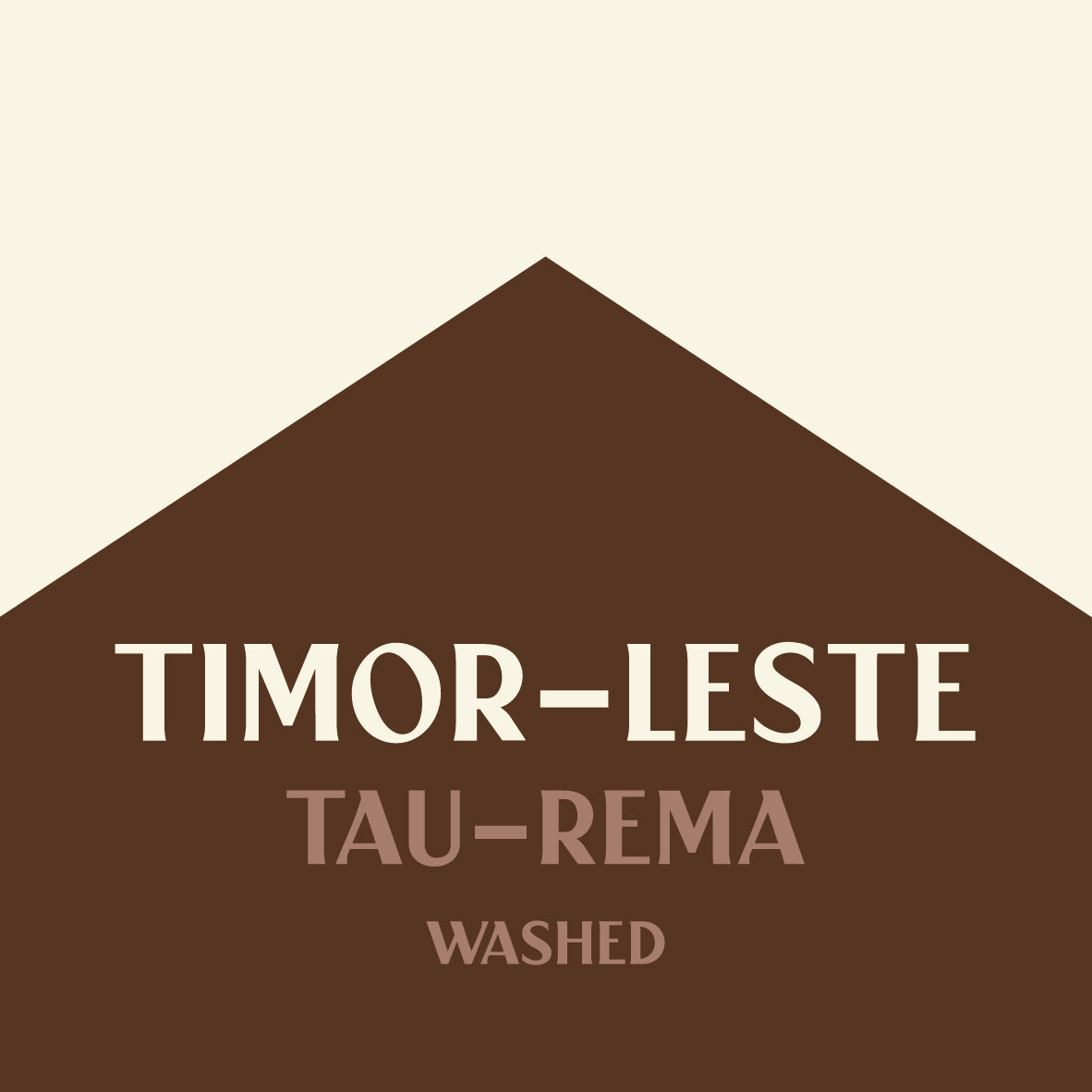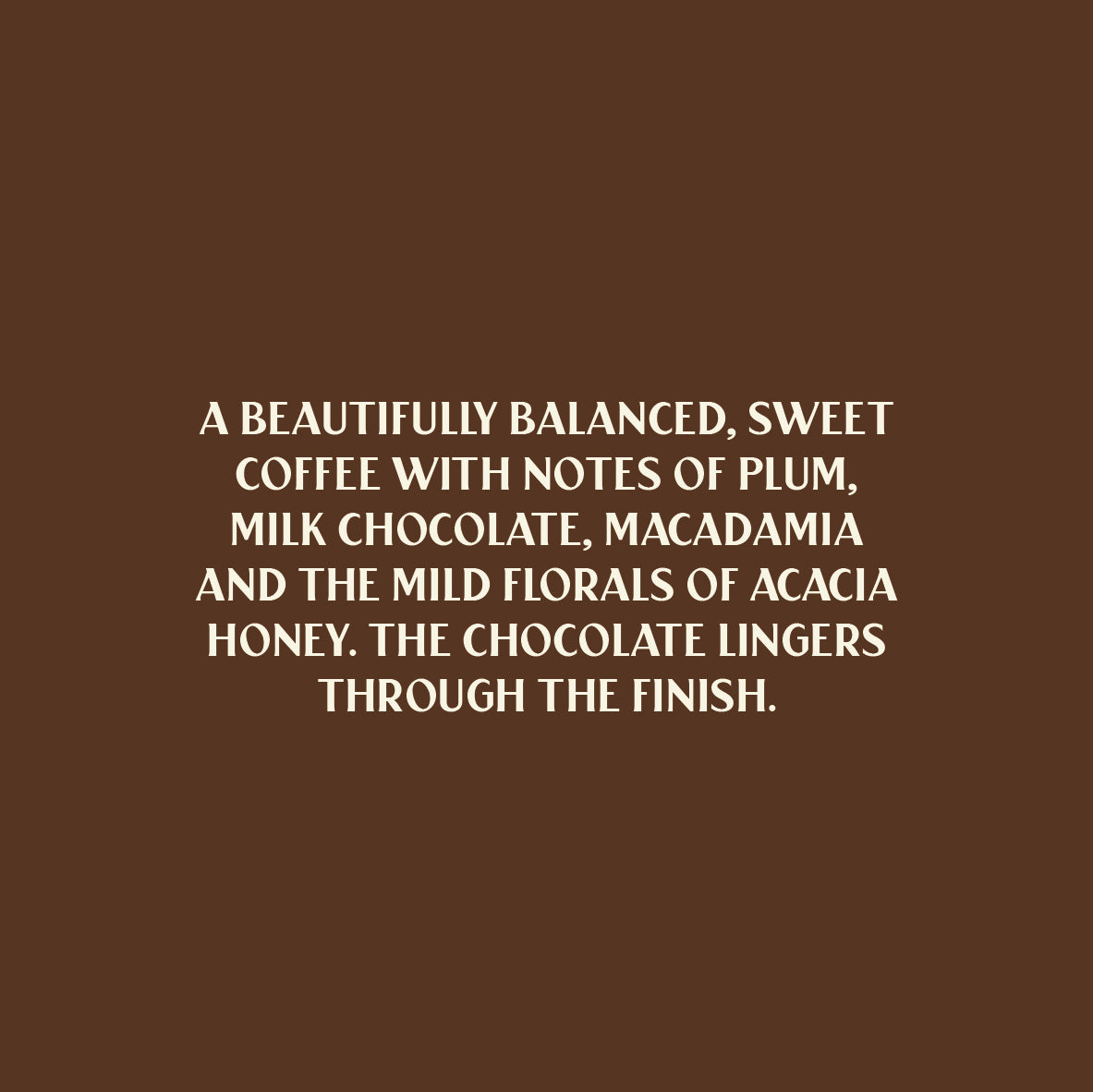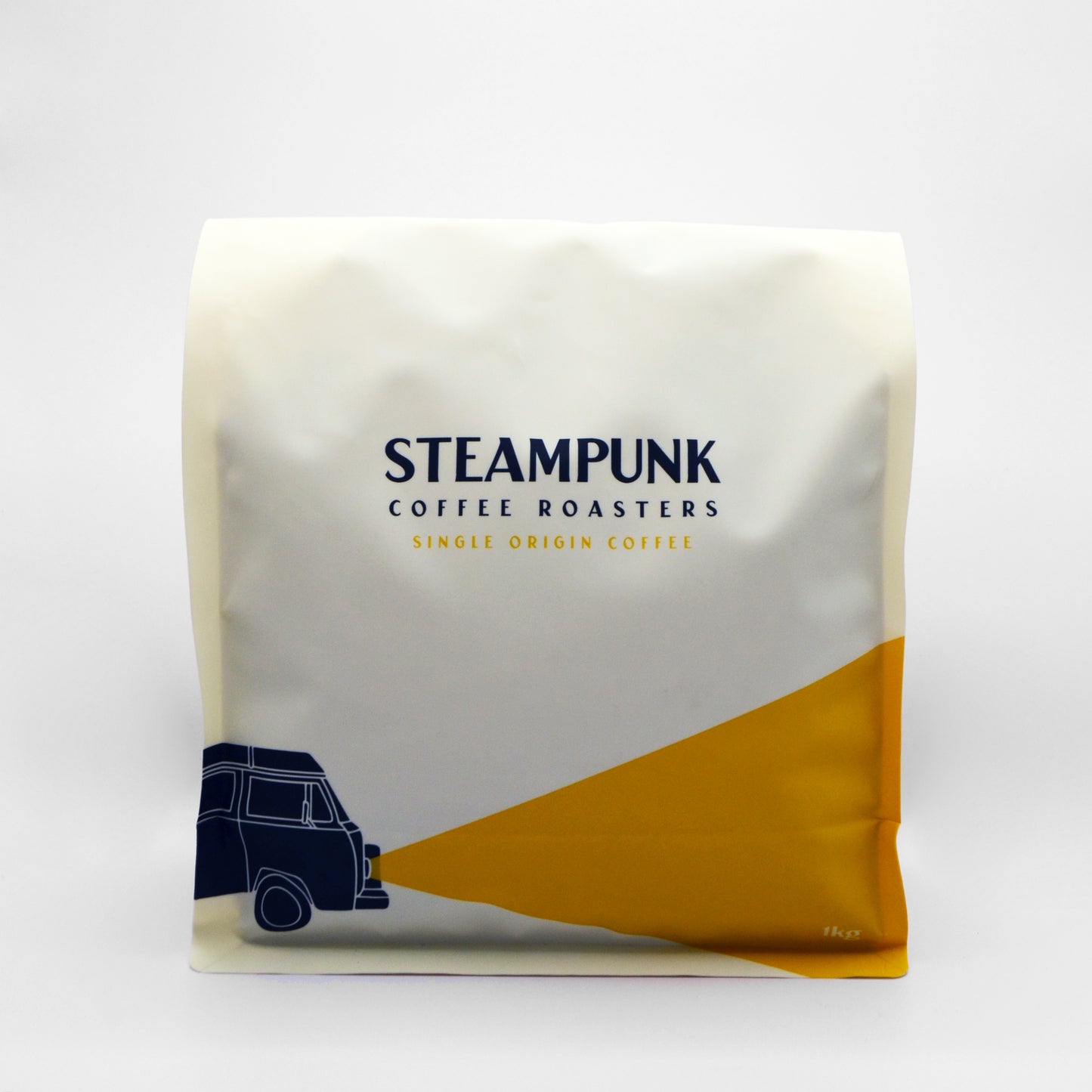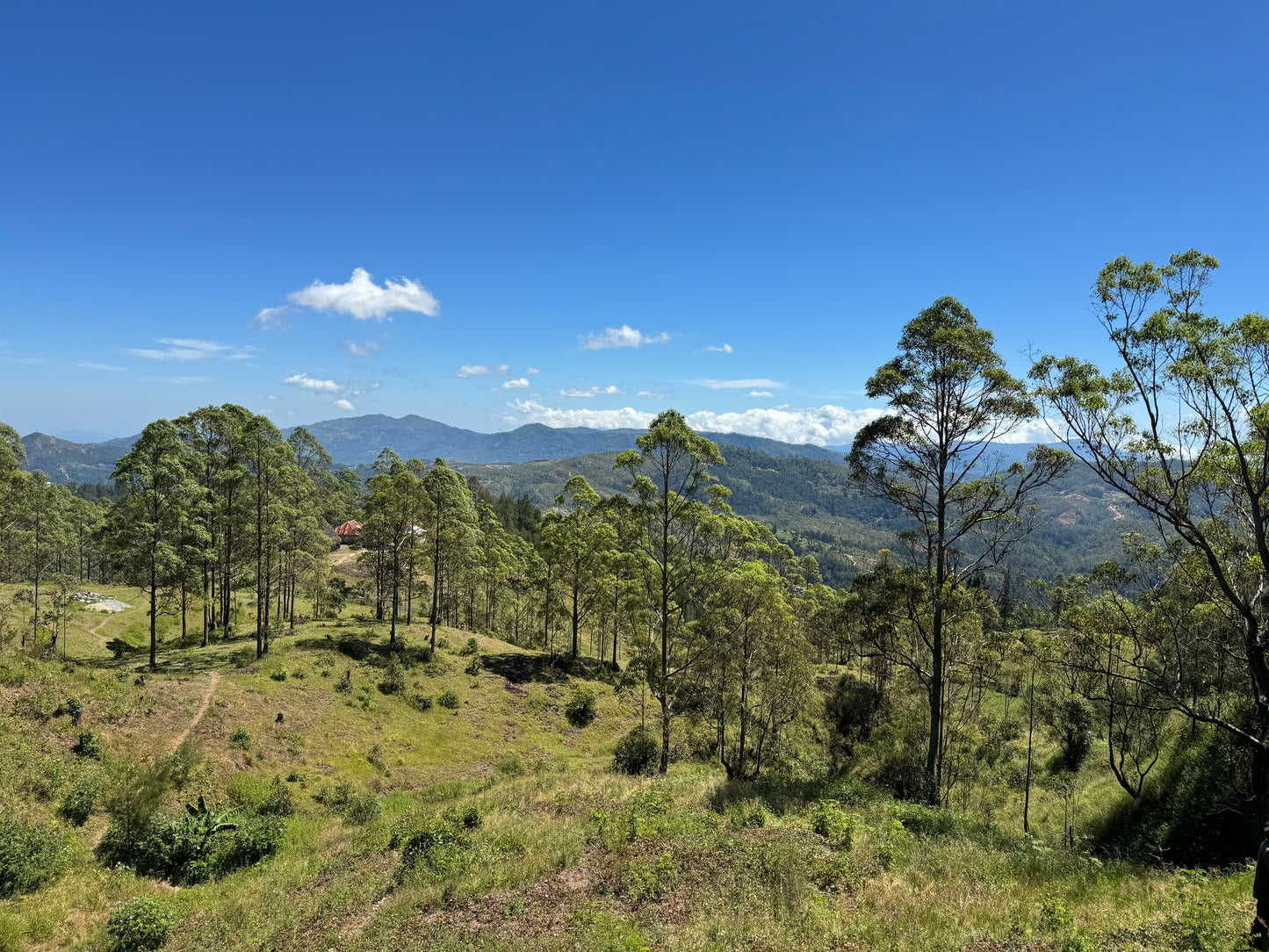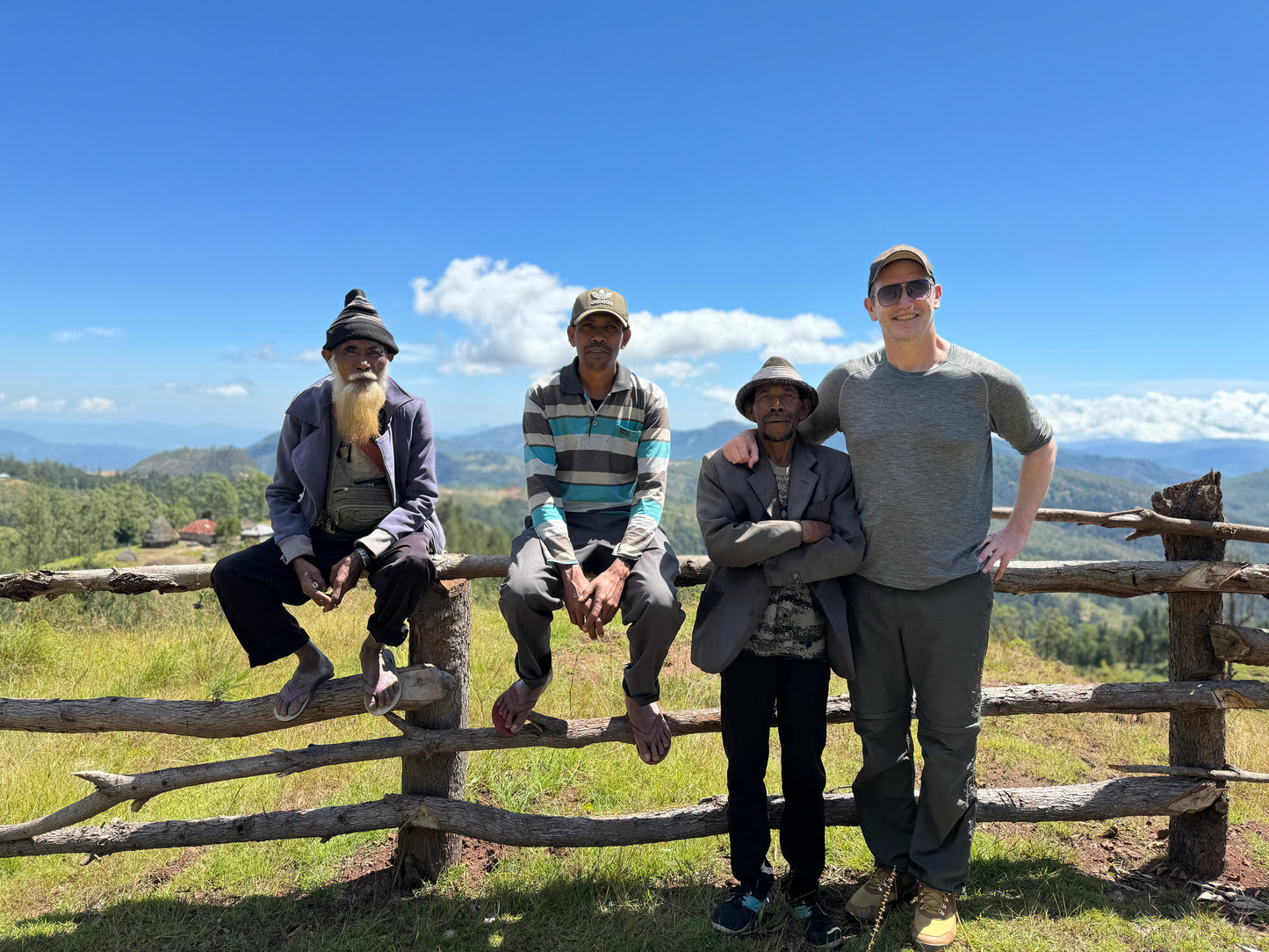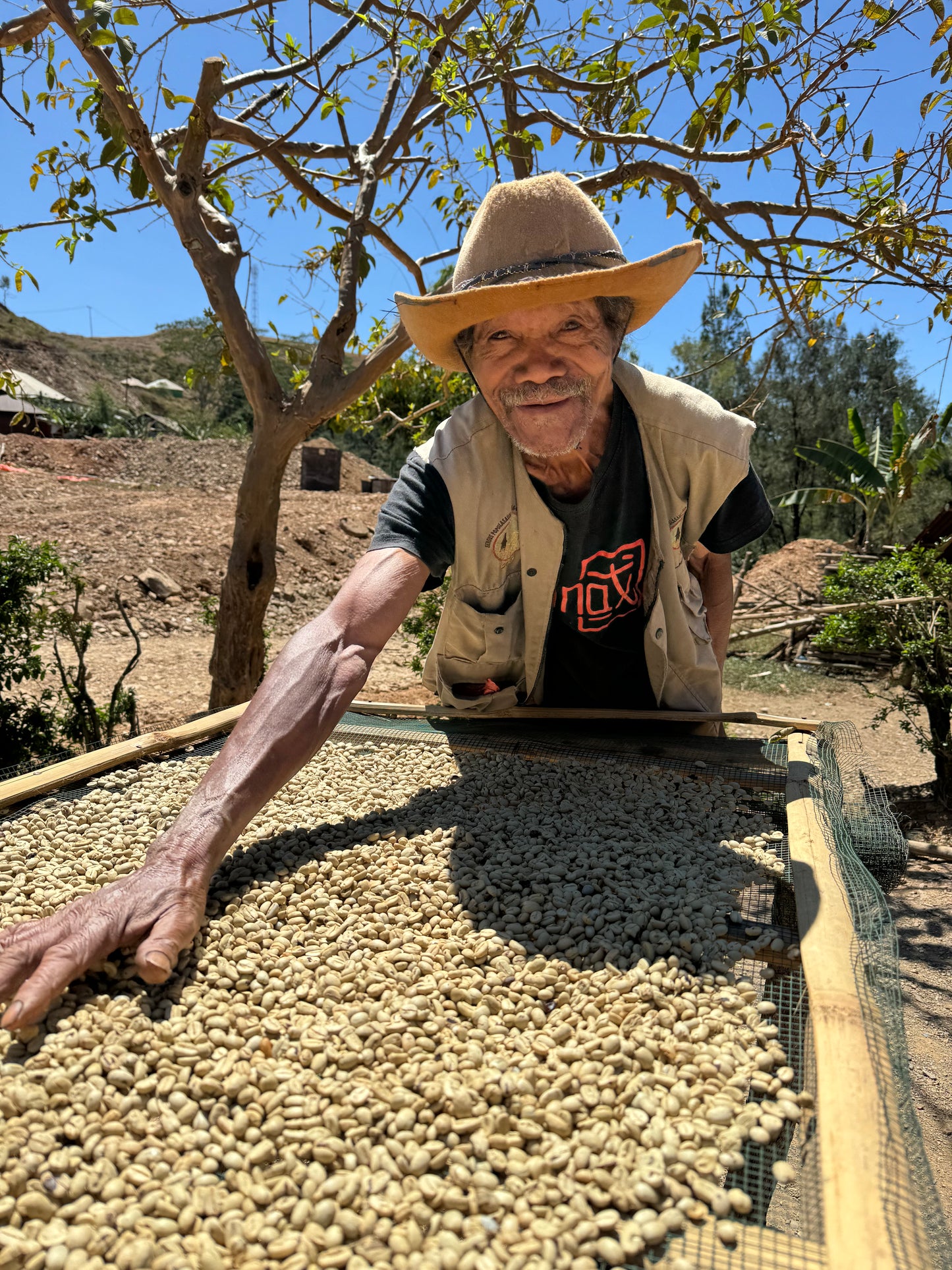Steampunk Coffee Roasters
Timor-Leste Tau-Rema
Timor-Leste Tau-Rema
Couldn't load pickup availability
Region: Letefoho
Altitude: 1,950 m.a.s.l.
Variety: Typica, Timor Hybrid
Processing: Washed
Tasting Notes: A beautifully balanced, sweet coffee with notes of plum, milk chocolate, macadamia and the mild florals of Acacia honey. The chocolate lingers through the finish.
This coffee from Tau-Rema Cooperative is back for the second harvest in a row and it’s remarkable how the quality has evolved. Last year we tasted molasses and cacao. A very good coffee, but not the most exciting cup on the table. This year it has fruit notes and is even cleaner with a gently floral character.
At close to 2,000 m.a.s.l., Tau-Rema is the highest altitude group working with Karst Organics, the importer who brought us this coffee. According to Karst, since their partnership began in 2021 Tau-Rema’s members have conscientiously worked on improving the processing of their coffee to meet the high standards required of the specialty market. Previously these producers sold their freshly harvested cherries to a local commodity buyer by carrying them approximately 2 km to the nearest mountain road. Seeing the year-on-year improvements resulting from their work has been a great example of how a community of coffee farmers can come together and make impactful changes to improve their livelihoods.
Work on coffee tree rehabilitation has also benefited the Tau-Rema farmers and their coffee forests are now looking healthier and less wild. As a result of the 510 kg of Tau-Rema’s green coffee sold from the 2023 harvest, a total of 51 coffee tree seedlings were planted. Whilst the work on rehabilitation and maintenance will be ongoing, farmers are already starting to see the benefits and the most recent harvest saw increased yields for those trees that had previously been rehabilitated.
Karst Organics is a husband and wife team who trade coffee only from Timor-Leste. They spend 6 months there every year and during the harvest they live in the mountains of Letefoho, working alongside the farmers who produced this coffee. “This investment of time has helped us to better understand their communities, their language, their culture and expectations. Ultimately, this makes our mutual needs more transparent and allows us to be better partners,” they say.
Transparency is a priority for Karst, who, for the six years they’ve been in operation, have published what they pay farmers for parchment and cherry as well as their offer price for roasters. In six years they’ve doubled the commercial price for cherry and made corresponding increases for parchment.
Timor-Leste is an island situated in Southeast Asia, approximately 1,000 miles east of Bali. With its lush green mountains and crystal blue sea, it may look like an idyllic paradise, but the reality is that this small country holds a troubled and complicated history. Timor-Leste is one of the few countries in the world to have been both colonised and annexed; colonised by Portugal from the 1600s to 1975 and annexed by Indonesia from 1975 to 1999. Having finally gained independence for a second time in 2002, Timor-Leste is the world’s second youngest nation state and trying hard to find its voice in the geopolitical world of the 21st century after centuries of subjugation.
Coffee was first introduced to the island by the Portuguese and by the 1900’s was the country’s leading export, however the industry suffered greatly during the years of Indonesian annexation when the sector was largely ignored. Fast forward to the present day and you will see that the coffee farmers of Timor-Leste are working hard to collectively carve out a place for Timorese coffee in the global specialty coffee market, in addition to replenishing and rehabilitating their coffee forests which were so overlooked during the struggle for independence during the latter part of the twentieth century.
One of the most special features of East-Timorese coffee is that it is all organically grown underneath the imposing Ai-Kakeu (Casuarina) and Ai-Samtuku (Albizia) shade trees that dominate the mountainous coffee growing regions. It’s also environmentally sustainable because it’s organic by default. The producers can’t afford fertiliser so, although their coffee isn’t certified organic, it is grown naturally. They use chicken poo, coffee cherry skin and soil as compost for their coffee trees.
In addition, Timor-Leste is home to a unique variety of coffee plant, the Timor Hybrid. It’s a naturally evolved hybrid of the two main species of coffee: Arabica and Robusta. Interspecies hybrids are rare, but in the case of the coffee plant it’s a positive development because Arabica coffee (the species grown for specialty coffee) has a problematic genetic bottleneck. All Arabica plants can be traced back to just a few parent plants, which means they’re very similar genetically. This genetic similarity means that coffee as a crop is vulnerable to disease and climate-related losses. Timor Hybrid is classified as an Arabica plant but it has the disease resistance of Robusta. Flavourwise the results have been mixed, but it’s clear that with care and attention, it’s possible to create high quality lots.
A note about packaging
Our coffee comes packaged in beautiful and hard wearing tins. It is important to keep those beans away from air and light (see our blog post about coffee storage) and we think tins are the very best way of keeping those guys fresh.
Tins can of course be easily recycled (with other metals) but the very best and most environmentally conscious thing to do with them is to refill them. Find out how to refill or dispose of your Steampunk packaging HERE.
Share
